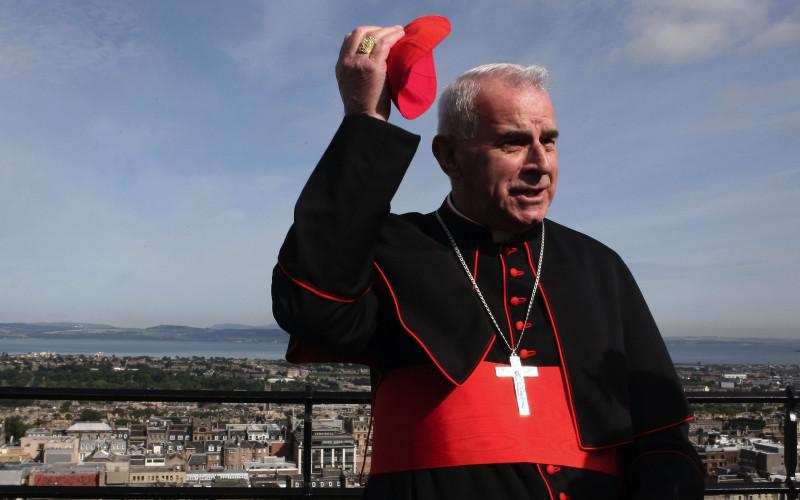|
Cardinal O’Brien can’t be exiled forever
By Fr Alexander Lucie-Smith
The Church may be quite good at handing out punishments, but seems less good in letting some sinners know they are forgiven The news that Cardinal O’Brien is now a cardinal in name only is not really news. Two years ago, he was not present at the conclave that elected Pope Francis. Given that the only real function that cardinals exercise of right is that of voting in a conclave, one can say that by staying away, Cardinal O’Brien effectively resigned his privileges then. What has happened now is that this resignation has been made official. Given the cardinal’s age, and the fact that he would have lost his vote anyway at the age of 80, one assumes that this resignation means only one thing of importance: it creates a vacancy, which matters, as the number of Cardinals is fixed at 120, though, of course, popes sometimes break this rule. Again, the news that Cardinal O’Brien has had a house bought for him to live in is not really news either. All retired clergy are given a place to live when they retire. When they die, or go into other accommodation, the house returns to the diocese which retained ownership all along. The real story of the Cardinal O’Brien’s status is one that most people seem to have missed. It is this. The Church, we are often told, “preaches forgiveness”. That is true enough, but it goes much further than that: the Church is the place where forgiveness happens. Commit a sin, go to confession, make an act of contrition, show a firm desire of amendment and that you are willing to carry out a usually token penance, and you receive absolution. This absolution comes from God, through the power of the Holy Spirit, and through the ministry of the priest, who says “may God give you pardon and peace.” Again, an act of repentance takes place at the start of each Mass. Moreover, we are constantly told by our pastors that everyone is welcome in Church, and that we should all ensure that this welcome is real, by being a welcoming community. If this were not enough, we are told that the Church is a field hospital for sinners. The trouble that the Cardinal O’Brien story brings to the fore is that while the Church may be quite good at handing out punishments, she seems to be less good in letting some sinners know they are forgiven and re-integrated into the community. Canon law has a whole section on penalties. Punishments there must be, in that actions have consequences. But what about welcoming sinners back? That this is a challenge should perhaps not surprise us, as the most famous parable of Jesus is about a virtuous person reacting to the “injustice” of a sinner being re-integrated. Remember what the elder brother has to say when the Prodigal Son returns? ‘“Look, all these years I served you and not once did I disobey your orders; yet you never gave me even a young goat to feast on with my friends. But when your son returns who swallowed up your property with prostitutes, for him you slaughter the fattened calf.”’ (Luke 15: 29-30) These words really do resonate today, and not just in the case of the Cardinal. Sooner or later the Cardinal must be forgiven. Or has he already been forgiven? Has he been brought back into the fold? I am not sure, and remain genuinely confused about this. To add to my confusion is the spectre of what Alice Thomas Ellis called the Lord Longford syndrome, that is, forgiving someone the wrong they have done when you personally were not the wronged person. Perhaps it is not up to me to forgive the Cardinal as he has not hurt me. But the fact remains: the Pope has settled the question of the Cardinal’s status and where he is to live: but there is still unfinished business, spiritual business. We need reconciliation. This is not the Soviet Union: we cannot have the cardinal living out his life in the equivalent of Siberia.
|
.
Any original material on these pages is copyright © BishopAccountability.org 2004. Reproduce freely with attribution.
